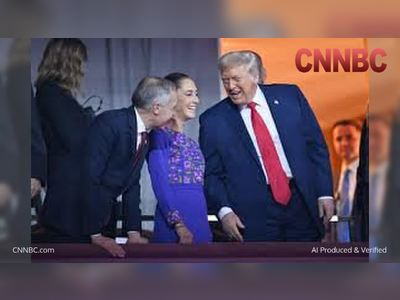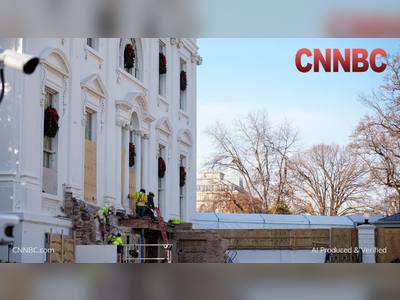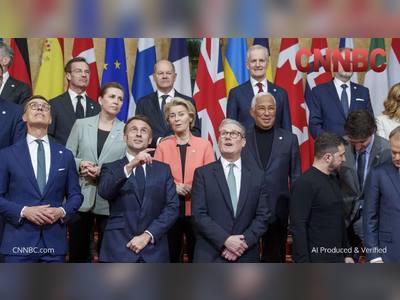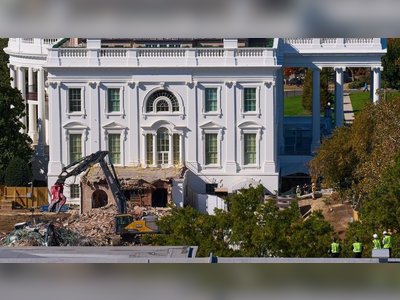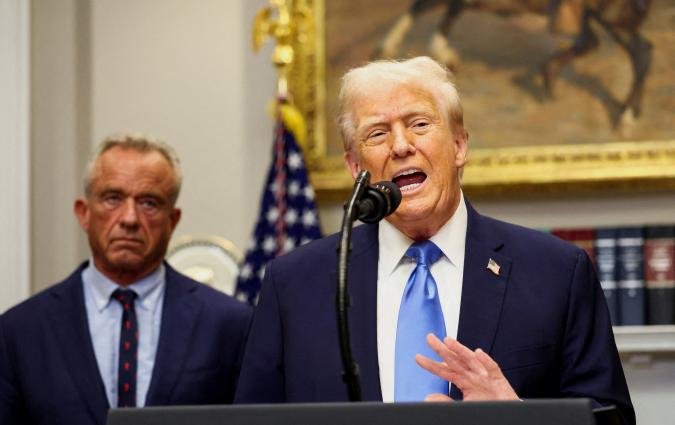
Science Journalists Worldwide Unite to Counter White House Health Misinformation
Global science reporters step up efforts to combat misleading medical claims and rebuild public trust in evidence-based reporting
Science and health journalists across the world are mounting a coordinated response to a surge in misinformation emerging from the White House, following a series of statements by President Donald Trump and Health Secretary Robert F. Kennedy Jr. that challenge long-standing scientific consensus.
Claims such as the suggestion that pregnant women should avoid Tylenol to prevent autism, and renewed doubts about vaccine safety, have sparked concern among editors and reporters dedicated to factual, evidence-based health communication.
Ricke Berke, executive editor of a leading U.S. health outlet, said his newsroom has shifted from long-term investigations to rapid-response coverage to counter false claims made in political briefings.
“There has never been a time when science has been so polarised and so politicised,” he said.
Tom Zeller Jr., editor-in-chief of a non-profit magazine covering science and society, described the current moment as “Trump on steroids,” acknowledging that science journalists now face unprecedented political headwinds in their mission to explain facts objectively.
In Latin America, Peruvian editor Fabiola Torres described the spread of a “second wave” of health misinformation since the pandemic, driven by rhetoric from influential global figures.
“This rhetoric undermines confidence in vaccines and medicine,” she said.
In Kenya, publisher Verah Okeyo of DeFrontera observed that conspiracy theories have increasingly merged with religion and far-right ideology, saying, “The hatred for science has merged with faith and ideology, giving misinformation a political platform.” In South Africa, Bhekisisa editor Mia Malan said misinformation has become a useful signal for identifying where public education is most needed.
The effects of health disinformation are already visible.
The United States has recorded more than 1,600 measles cases across 42 states, while South Africa reported 60 diphtheria cases this year and Peru is battling a major whooping cough outbreak, with infections rising more than 3,000% year-over-year.
Journalists attribute these resurgences partly to declining trust in vaccination programs and to the amplification of political narratives that cast doubt on medicine.
Editors now see rebuilding trust as the most urgent challenge.
“Politicians often start with a kernel of truth, which makes the misinformation harder to combat,” Berke said.
“Our job is not just to label something false, but to show how science works—its process, evidence, and limits.” Across continents, science journalists are prioritizing clarity, accessibility, and connection with communities to make reliable information resonate.
Zeller added, “If we aren’t making evidence accessible across ideological lines, we become part of the problem.”
Claims such as the suggestion that pregnant women should avoid Tylenol to prevent autism, and renewed doubts about vaccine safety, have sparked concern among editors and reporters dedicated to factual, evidence-based health communication.
Ricke Berke, executive editor of a leading U.S. health outlet, said his newsroom has shifted from long-term investigations to rapid-response coverage to counter false claims made in political briefings.
“There has never been a time when science has been so polarised and so politicised,” he said.
Tom Zeller Jr., editor-in-chief of a non-profit magazine covering science and society, described the current moment as “Trump on steroids,” acknowledging that science journalists now face unprecedented political headwinds in their mission to explain facts objectively.
In Latin America, Peruvian editor Fabiola Torres described the spread of a “second wave” of health misinformation since the pandemic, driven by rhetoric from influential global figures.
“This rhetoric undermines confidence in vaccines and medicine,” she said.
In Kenya, publisher Verah Okeyo of DeFrontera observed that conspiracy theories have increasingly merged with religion and far-right ideology, saying, “The hatred for science has merged with faith and ideology, giving misinformation a political platform.” In South Africa, Bhekisisa editor Mia Malan said misinformation has become a useful signal for identifying where public education is most needed.
The effects of health disinformation are already visible.
The United States has recorded more than 1,600 measles cases across 42 states, while South Africa reported 60 diphtheria cases this year and Peru is battling a major whooping cough outbreak, with infections rising more than 3,000% year-over-year.
Journalists attribute these resurgences partly to declining trust in vaccination programs and to the amplification of political narratives that cast doubt on medicine.
Editors now see rebuilding trust as the most urgent challenge.
“Politicians often start with a kernel of truth, which makes the misinformation harder to combat,” Berke said.
“Our job is not just to label something false, but to show how science works—its process, evidence, and limits.” Across continents, science journalists are prioritizing clarity, accessibility, and connection with communities to make reliable information resonate.
Zeller added, “If we aren’t making evidence accessible across ideological lines, we become part of the problem.”




